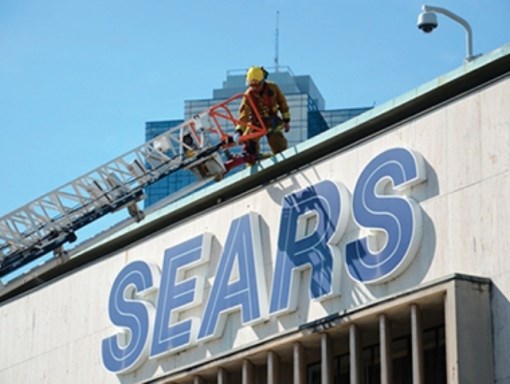Sears Canada died this week. It might have survived greed or incompetence, but the 65-year-old Canadian institution was in no shape to cope with both.
The companies’ woes began when hedge fund giant and controlling Sears Canada shareholder Edward Lampert divided the parent company into warring fiefdoms. A devotee of Ayn Rand, Lampert fuelled his company with pure self-interest.
Conservative commentator William F. Buckley once wrote that both Rand and her philosophy were dead. But Rand marches on, giving academic grounding to every captain of industry still nurturing their childhood dream of acquiring every toy in the sandbox.
The end result is 12,000 people out of work, and some of those left jobless worked at Burnaby’s Brentwood store and Metropolis at Metrotown’s store.
But while Sears Canada may have hastened its own demise, it would be a mistake to examine its failure in a vacuum.
With Target and HMV faltering, Canada lost more than 30,000 jobs in electronics, appliance and general merchandise stores between 2012 and 2016.
A few years ago, community activists and small businesses fought the incursion of big box stores. Some communities repelled brick and mortar behemoths, but there was no successful campaign against online retailers. Even shoppers who frequent farmers markets tend to be seduced by drone-delivered merchandise.
The big box stores are invisible, but they’re here, just one click away.
It doesn’t profit a customer to redeem a discount if it costs a community. As the holidays approach, consider the small operators who work here, pay taxes here and keep our economy afloat. And know that when you online shop, they drop.



